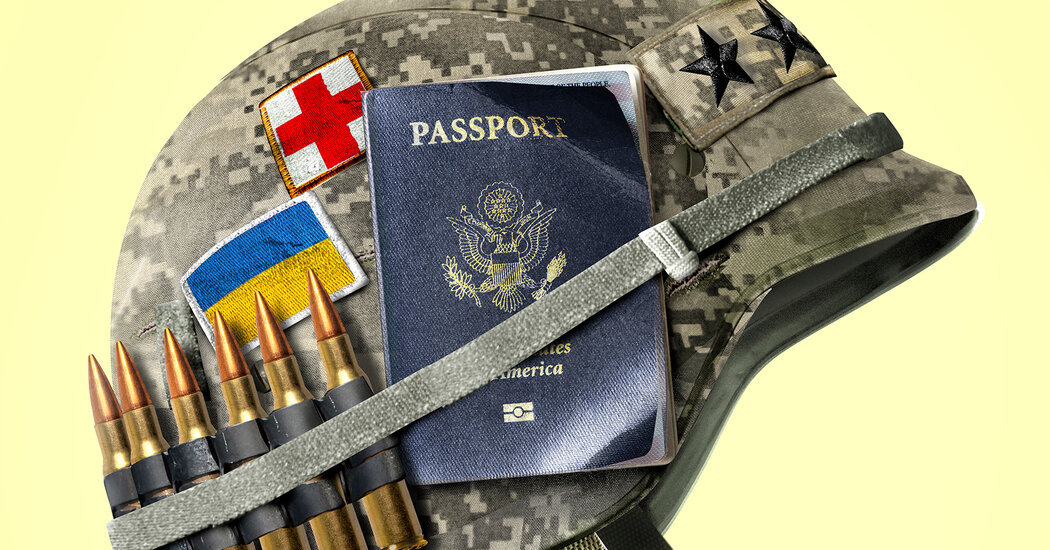Opinion | My Advice for American Veterans Who Want to Get on a Plane to Ukraine – The New York Times

Those considering traveling to Ukraine must ask themselves how they will provide something the Ukrainian people lack and need.
This is what best separates those who should go, if able and willing, from those who should find other ways to support the cause. To a person, those who know they can help there have already identified areas of need. Take, for example, a former Special Forces medic who has a month between jobs and would like to treat wounded refugees and train civilians in combat medicine. That’s someone who can make a direct, immediate difference.
Then there’s the other type of potential volunteer. We called them “goons” on our way home while in Krakow, Poland, where many mill about, as it’s become a staging ground for the war across the border. Goons are easy to spot — loud and obvious, usually dressed in fatigues and sometimes adhering to extremist ideology. Some even sincerely want to help. They just don’t know where, or how.
Some of these people have figured their way into the war, joining Ukraine’s newly formed foreign legion and fighting Russian troops around Kyiv. There have been mixed results. “We should only take experienced combat veterans — that is the lesson that we are learning,” a Ukrainian general told Task & Purpose last month. “The others don’t know what they are getting themselves into.”
This foreign legion has drawn a lot of media attention since President Volodymyr Zelensky put out the call for international recruits in late February. The Defense Ministry claims upward of 20,000 fighters from 52 countries, with 3,000 Americans in the ranks. Harrowing anecdotes from legionnaires have emerged since, tales of not enough training and equipment, along with a pronounced absence of oversight from Ukrainian officers.
“What’s different with the U.S. military and all the other NATO militaries — they’re spoiled,” an American legionnaire told Vice News. “When it comes to fighting a war, they have air support, medevac, logistics, all kinds of different levels of intelligence and support.” In Ukraine, he said, “we had none of that.”
There’s also been a documented lack of trust and cohesion in the foreign legion, and Antonia Hitchens, writing in The New York Review of Books, was told that the more professional foreign fighters are finding placement in the Georgian National Legion, a separate, more established paramilitary unit fighting for Ukraine, as a result. Recruitment for the Ukrainian foreign legion has reportedly been put on hold.




